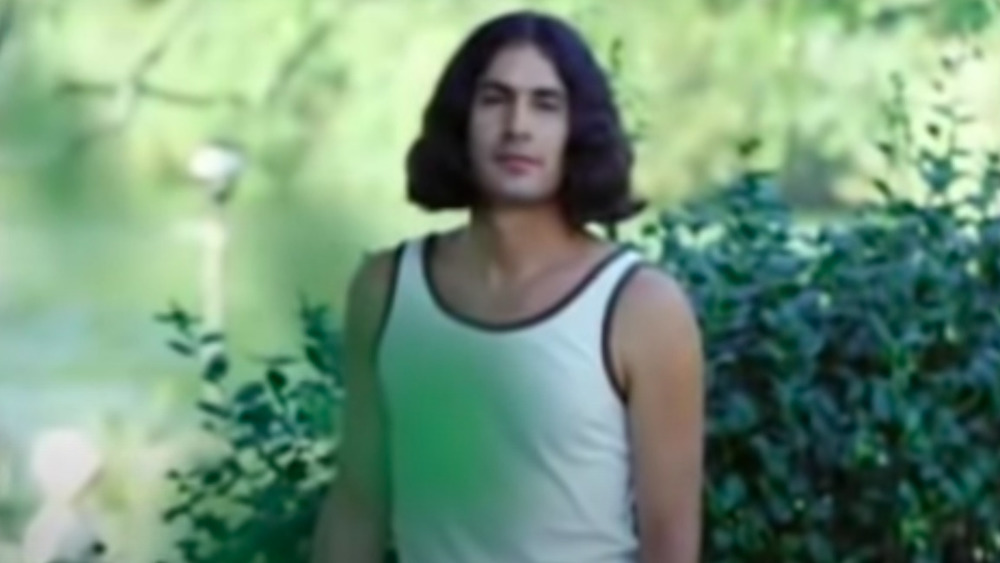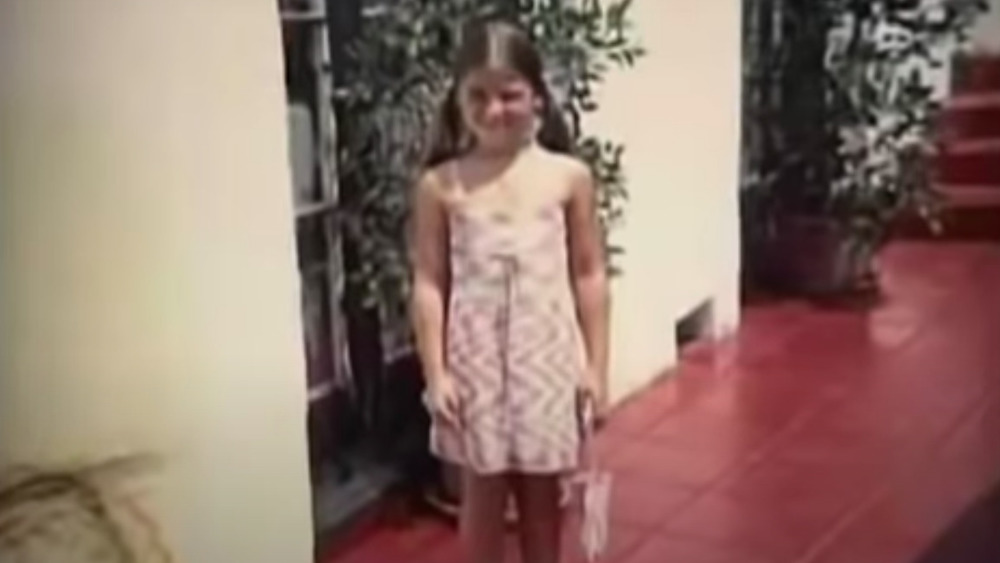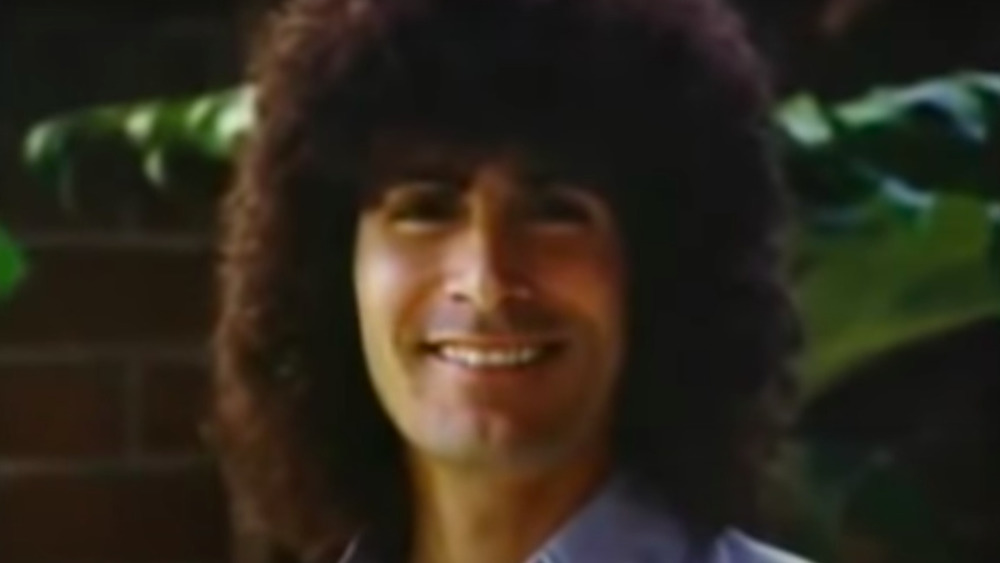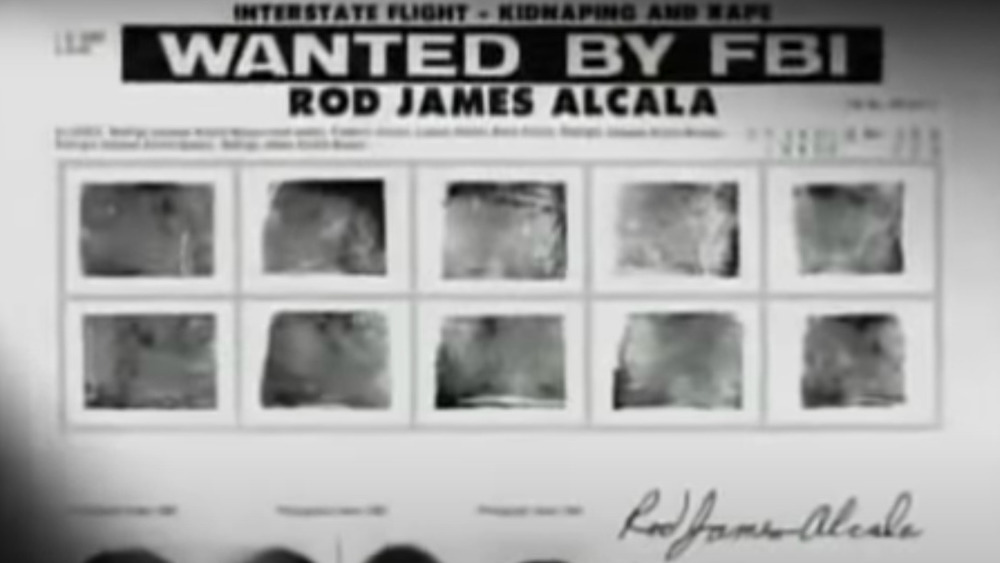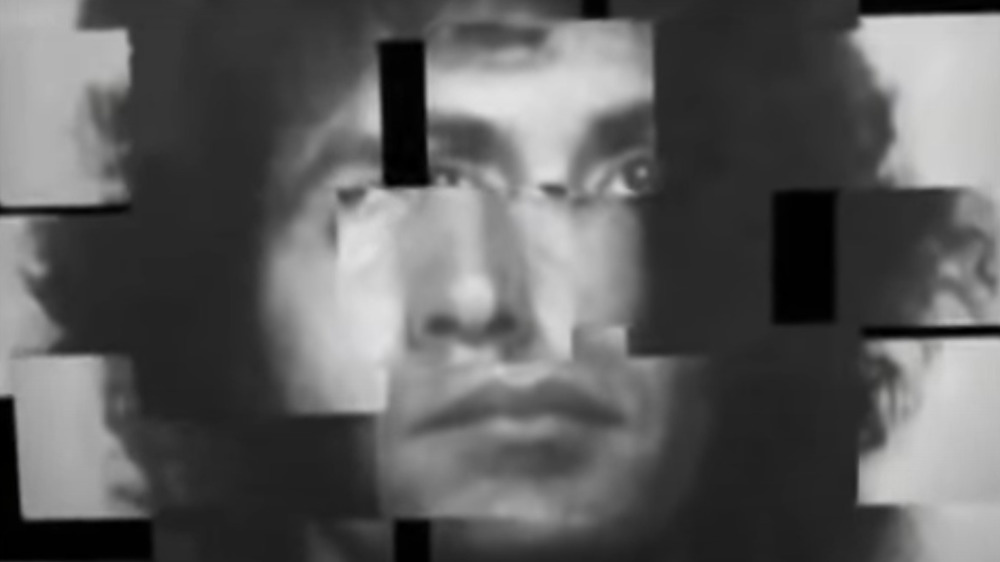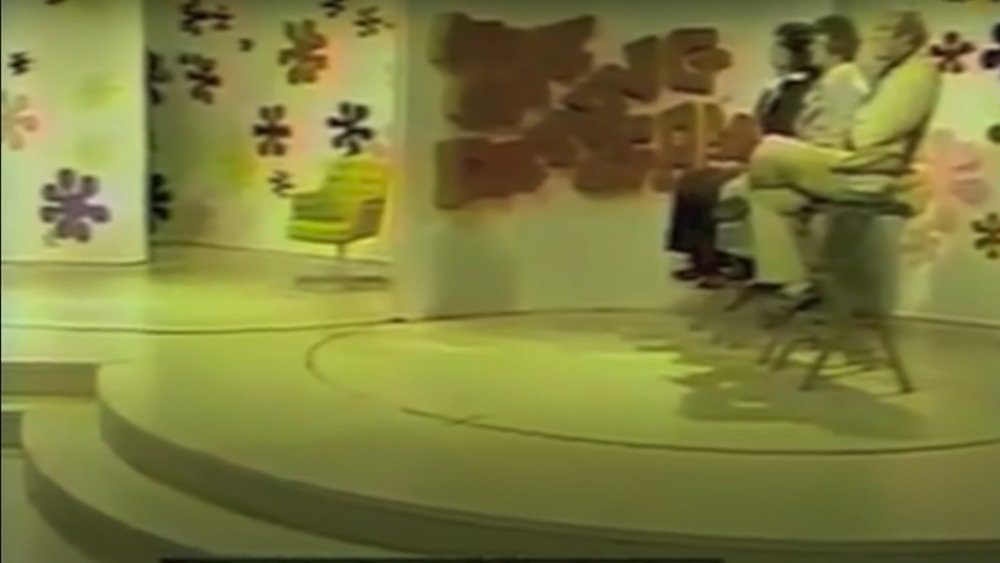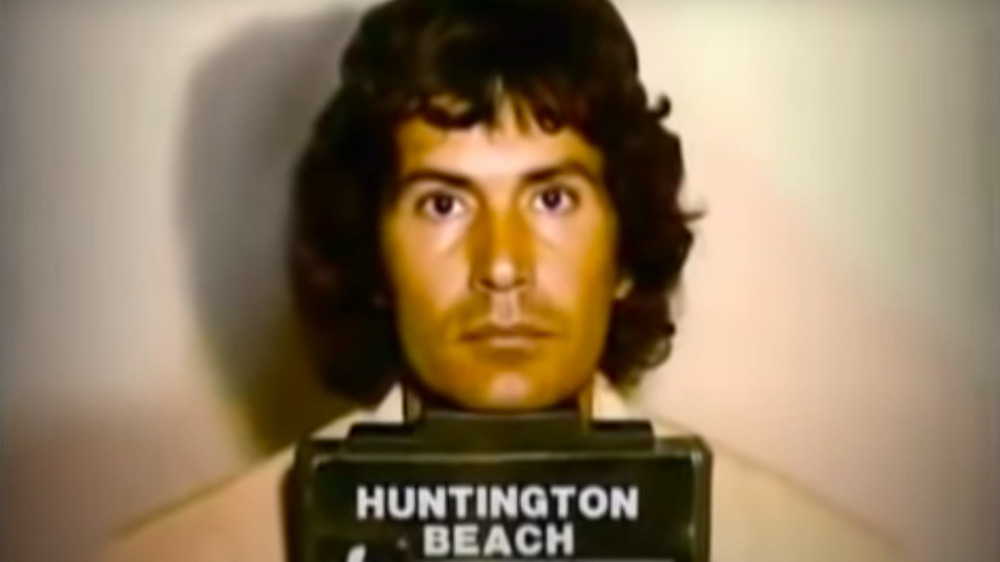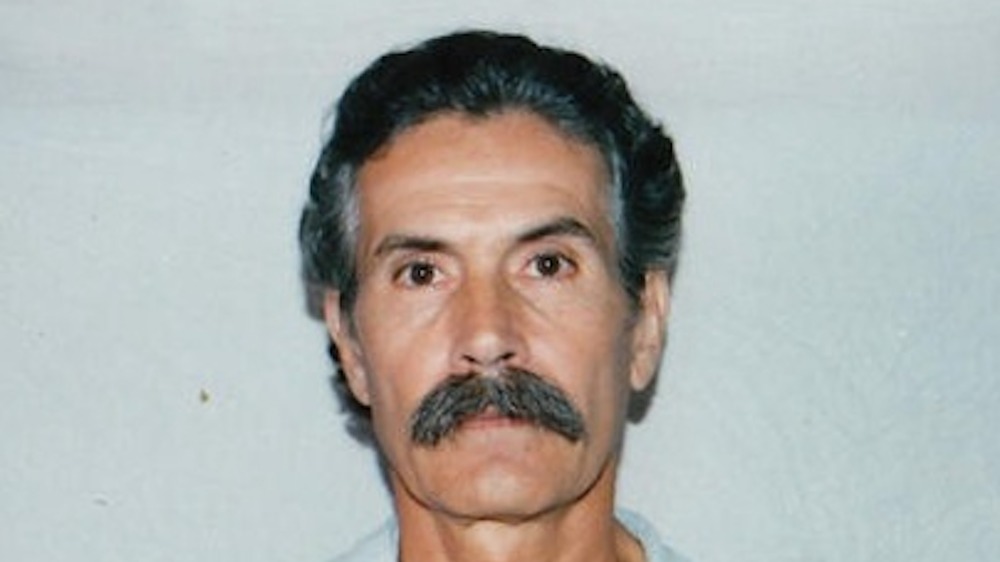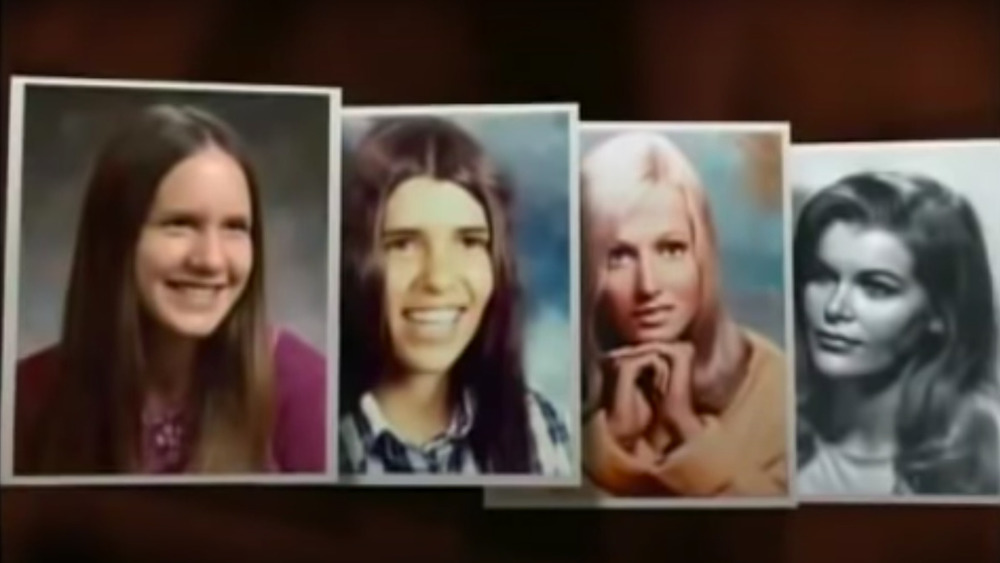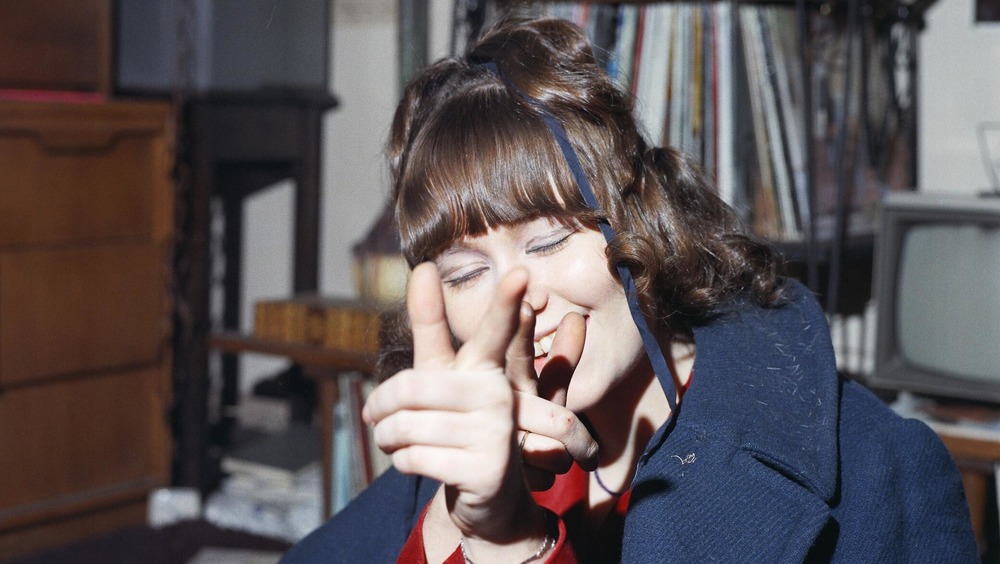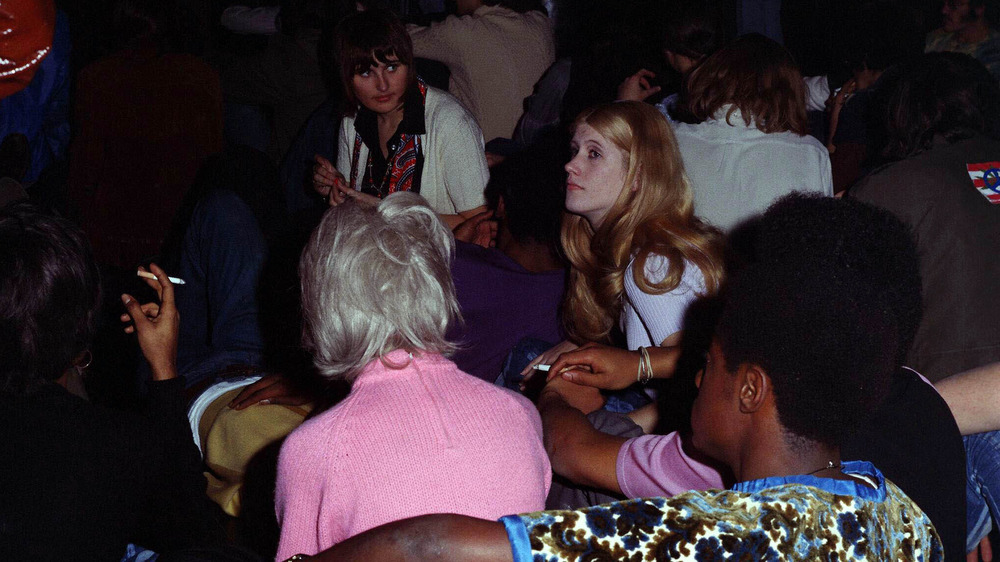The Crazy True Story Of The Serial Killer Who Went On The Dating Game
Everyone deserves a chance to find love, but there's something weird about the fact that serial killer Rodney Alcala went on a dating game show between some of his murders. And despite the fact that he won on the show, apparently his demeanor behind the scenes was so unnerving and creepy that the lucky bachelorette decided to renege on her choice.
Convicted three times for murder, Alcala repeatedly appealed his death sentences. And even during his third and final trial in 2010, during which he acted as his own defense attorney, he "laughed and talked throughout." During his last sentencing, he decided to play "Alice's Restaurant," by Arlo Guthrie, for the courtroom, although it's unclear if he played them the entire 18-minute song or just the part that goes "Eat dead, burnt bodies/ I mean kill/ Kill, kill, kill!" Either way, bold move when the jury is deciding whether to give you life in prison or the death penalty. This is the crazy true story of the serial killer who went on The Dating Game.
Who was Rodney Alcala?
Born in San Antonio, Texas, on August 23, 1943, Rodrigo Jacques Alcala Buquor was one of four children born to Raoul Alcala Buquor and Anna Maria Gutierrez. In 1951, Alcala's family moved to Mexico as part of his maternal grandmother's dying wish. But after Alcala's maternal grandmother died and his father left their family, they moved again to Los Angeles, Calif.
In The Dating Game Killer, Stella Sands writes that growing up, Alcala had "many friends," and after he graduated high school, he decided to join the Army since his older brother was already at West Point. ThoughtCo. writes that when he was 17 years old, Alcala joined the Army. However, he was only there for only a few years, working as a clerk, before he had a nervous breakdown. After being diagnosed with antisocial personality disorder in 1964, Alcala was given a medical discharge.
Before the nervous breakdown that seemed to trigger the medical discharge, Alcala also reportedly showed up at his mother's house in 1962 and said he had gone AWOL. His first hospitalization occurred after he turned himself in, and he ended up being hospitalized until his medical discharge in February 1964.
One he was out of the Army, according to Biography, Alcala briefly attended California State University before transferring to UCLA. Enrolling at UCLA's School of Fine Arts, in 1968, Alcala graduated with a bachelor's degree in fine arts.
Rodney Alcala's first known crime
Rodney Alcala committed his first known crime in 1968. According to People Magazine, 8-year-old Tali Shapiro was walking to school on September 25, when Alcala pulled up next to her in a car, asking if she needed a ride. After Shapiro responded with "I don't talk to strangers," Alcala claimed that he knew her parents. In her recollection, Shapiro says that "I really didn't want to get into the car but I was raised to respect my elders," and so she got into the car.
Alcala drove Shapiro to his apartment and proceeded to assault her. However, a motorist had seen Alcala pick Shapiro up, and after following them, had called the police. ThoughtCo. reports that when police arrived, they found Shapiro "in a large puddle of blood and not breathing." They began to search for Alcala in the apartment, but when one of the officers realized that Shapiro was still alive and struggling to breathe, all their focus turned onto her, and Alcala managed to escape.
In the apartment, police officers also discovered "several pictures, many of young girls."
Alias John
Since police had discovered Rodney Alcala's name and UCLA attendance in his apartment, Alcala fled to New York City using the alias "John Berger" and enrolled at New York University. According to The Dating Game Killer, despite the fact that the semester had already started, Alcala was able to charm the chairman of admissions into letting him join the undergraduate School of the Arts.
Although it's repeatedly claimed that Alcala studied film under Roman Polanski at NYU, this is unlikely since by 1968, Polanski had moved to Hollywood, Calif.
Alcala attended NYU from 1968 to 1971, during which time he also worked as a security guard to pay for his tuition. And in the summer of 1969, he started working as an arts counselor at a summer camp in Georges Mills, N.H. The director was so impressed with Alcala and how he "confidently demonstrated techniques of filmmaking and photography to the eager young campers," that he invited Alcala to come back the following year.
Alcala worked at Georges Mills during the summer of 1970 as well, and after graduating from NYU in June 1971, he headed back to Georges Mills for a third summer. According to The Murder Squad, sometime before returning to Georges Mills, Alcala murdered 23-year-old Cornelia Michel Crilley. However, the case remained unsolved until 2011, when evidence linked Alcala to the murder.
FBI's Most Wanted
According to a documentary on the killer, between 1969 and 1971, Rodney Alcala was added onto the FBI's Most Wanted list for the assault and attempted murder of Tali Shapiro. According to Groovy History, since background checks were limited during the 1970s, Alcala was able to roam free and live as "John Berger" or "John Burger" for years. By 1971, Alcala had also begun "working as a photographer, primarily focusing on young women, in Manhattan."
During his third summer at Georges Mills, two campers recognized Alcala from the FBI wanted poster that was hung up in the post office and informed the camp directors. The FBI arrived at the camp, and after arresting Alcala based on fingerprint evidence, he was promptly extradited to California.
However, according to The Famous People, once back in California, Alcala wasn't charged with assault or attempted murder "since Tali's family did not allow her to testify against Rodney." By this point, Shapiro's family had relocated to Mexico and likely didn't want the trial to bring up traumatic memories for their daughter.
Rodney Alcala gets paroled
Without Tali Shapiro, the prosector's primary witness, it was difficult to convict Rodney Alcala of assault and attempted murder. As a result, according to ThoughtCo., despite the fact that Alcala was charged with "rape, kidnapping, assault, and attempted murder," he was able to plead down to one charge of child molestation in May 1972.
Radford University notes that Alcala was given an indeterminate sentence of one to ten years, which allows release once someone has shown themselves to be rehabilitated. By August 1974, a state prison psychiatrist determined that Alcala had "considerably improved during his time incarcerated," and he was released on parole, provided that he register as a sex offender.
However, two months after being released, Alcala was arrested once more after kidnapping a 13-year-old girl in Huntington Beach, Calif. He also allegedly forced the girl to smoke cannabis with him. Alcala was sent back to prison for violating his parole, but even though the girl told police that Alcala had kidnapped her, he was only convicted of "violating parole and providing drugs to a minor."
Alcala spent two-and-a-half more years in prison before being released once more on parole in June 1977, provided that he checked in with his parole officer on a weekly basis.
A murderous release
After being released from prison, Rodney Alcala decided to go back to New York City. And according to Radford University, his parole officer approved Alcala's request to travel to New York City in the summer of 1977, after Alcala told him that he wanted to visit relatives.
During his trip to Manhattan, Alcala murdered 23-year-old Ellen Jane Hover, although it's likely that she wasn't his only victim during this trip. In July 1977, she was declared a missing person, and it was said that the last person she was seen with was a photographer named "John Berger." However, her body wasn't found for a year and, although Alcala was brought in for questioning regarding Hoover's disappearance, "without a body or any evidence directly linking Alcala and Hover, he was released from custody." According to The New York Times, Alcala wasn't indicted for her murder until 2011.
After returning to California, Alcala got a job at the Los Angeles Times working as a typesetter. And ThoughtCo. reports that he promptly resumed his murder spree as well. In November 1977, 18-year-old Jill Barcomb was assaulted and murdered by Alcala, and her body was discovered in the foothills near Hollywood on Nov. 10, 1977. One month later, 27-year-old Georgia Wixted was also assaulted and murdered by Alcala, who left her body in her apartment to be discovered on Dec. 16, 1977.
Appearing on The Dating Game
The following year, Rodney Alcala appeared on the game show The Dating Game on September 13, where he presented himself as a bachelor looking for love. However, according to CNN, even Jed Mills, the contestant who was sitting next to him thought "he was creepy. Definitely creepy."
Described as "a successful photographer who got his start when his father found him in the dark room at the age of 13, fully developed," at this point Alcala had already been convicted of child molestation and was a registered sex offender. Somehow, he still managed to charm bachelorette Cheryl Bradshaw and won the game. However, after the show, when Bradshaw spoke with Alcala away from the cameras, she also ended up finding him "creepy" and decided not to go on an actual date with him.
Three months before Alcala's appearance on The Dating Game, the body of 32-year-old Charlotte Lamb was found in the laundry room of an apartment complex in El Segundo, Calif., although the body wasn't identified until September 1978.
The murder of Robin Samsoe
In February 1979, 15-year-old Monique Hoyt was kidnapped and assaulted by Rodney Alcala. However, she was able to escape when Alcala went into a gas station bathroom. Four months later, 12-year-old Robin Samsoe and her friend Bridgette were approached by Alcala. Although he "ran off when a neighbor walked over to see what was going on," according to Groovy History, Samsoe disappeared after leaving her friend to go to her dance class on June 20, 1979.
According to Radford University, while she was on her way to work, a 20-year-old firefighter named Dana Crappa actually saw Alcala dragging Samsoe into the woods. However, for some reason she "decided to keep her observation to herself."
Samsoe was declared missing that evening. Her friend described Alcala to a sketch artist, and on June 22, the sketch was shown on the 5 p.m. news broadcast. On June 25, Crappa apparently went back to the woods where she'd seen Alcala and Samsoe, and although she found "human remains, she once again keeps this observation to herself."
By the end of June, Alcala was considered a person of interest in the case, since detectives had compared his previous mugshot with the composite sketch. On July 2, when William Poepke, Crappa's colleague, also discovered the human remains, "unlike his coworker, Poepke reports his findings of the dead body to the authorities." Police confirm that the remains belong to Samsoe, and on July 14, Alcala was arrested.
Trial and error
One of Rodney Alcala's sisters came to visit him in jail, and during their visit, police heard him ask her to clear out a storage locker in Seattle. Arriving before she had the chance to, police found hundreds of "graphic and disturbing" photos, along with a bag of earrings. Once Robin Samsoe's mother identified that the earrings had belonged to her daughter, Alcala was charged. On April 30, 1980, Alcala was found guilty of first-degree murder and forced kidnapping. In the autumn of 1980, Alcala was also convicted for assaulting Monique Hoyt.
Alcala was sentenced to death, but according to Journal Online, he appealed the decision, and the California Supreme Court ruled in his favor, determining that Alcala hadn't received a fair trial since "jurors had been informed of his prior sex crimes." On Aug. 23, 1981, the court reversed his death penalty sentence.
In 1986, Alcala was once again tried and convicted for Samsoe's murder and was once more sentenced to death. However, this conviction was also overturned in 2001, this time by the 9th Circuit Court of Appeals, ThoughtCo. reports.
The third death sentence for Rodney Alcala
In 2010, Rodney Alcala was tried for Robin Samsoe's murder for a third time, but this time he was also charged for the murders of Charlotte Lamb, Georgia Wixted, and Jill Barcomb. He was also charged again for the murder of 21-year old Jill Parenteau, whom he killed in June of 1979, but the case against him was dismissed at the time.
According to Journal Online, this was the first trial that Tali Shapiro testified at, now a grown woman in her 50s. Alcala, acting as his own defense attorney, even apologized to her for the first time, but Shapiro later said, "for him to even bother, I mean, that made me sick to my stomach." Alcala also made his apology "during the crucial time in which the jury was deciding whether to recommend a life sentence or the death penalty."
During the trial, Alcala didn't seem to argue the fact that he'd murdered at least four women and instead focused on the charges regarding Samsoe. At one point, he even questioned himself in the third-person, "changing his tone depending on if he was acting as his lawyer or as himself."
On Feb. 25, 2010, Alcala was found guilty of five counts of murder, four counts of rape, and one count of kidnapping. He was also once again sentenced to death. This time, the conviction stuck. Alcala remains in a California holding facility as of February 2021, "allegedly in the throes of deep dementia," says Thought Catalog.
An unknown number of victims
Although only eight of Rodney Alcala's victims are confirmed, it's estimated that he's murdered over 100 people. According to The Cinemaholic, some think that the number is as high as 130. Alcala himself claimed at one point to have killed "at least thirty women."
Alcala wasn't charged with his eighth murder until 2016, when he was charged with the 1977 Wyoming killing of Christine Thornton, who was 28 at the time. However, even though it was decided not to extradite him for a trial, the charges against him also weren't dropped. In 2011, however, New York did choose to extradite Alcala, and he pled guilty for the murders of Cornelia Crilley and Ellen Hover.
According to Thought Co., after Alcala's 2010 conviction, the Huntington Beach Police Department released some of the photos that Alcala had taken of people, in the hopes that people could identify the faces in the pictures, possibly leading them to more of Alcala's victims. CBS News reports that officials were able to link Alcala to Thornton's murder when Thornton's siblings recognized her in Alcala's photos. Investigators also found that the photograph Alcala took "was taken a short distance from where her remains [were found]."
Hundreds of photographs
For several years, Rodney Alcala posed as a fashion photographer and took hundreds of photos of people, ranging in age from young girls to women in their 30s, after convincing them that the photographs were for his "portfolio." A number of the photographs also feature young boys.
NBC News reports that Huntington Beach Police Department released over 100 photographs that had been found in Alcala's storage locker. However, the total number of photographs and negatives numbered over 1,700, according to Thought Catalog. The majority of the photos are sexually explicit and include images of both women and men. Police have also been able to confirm that "at least four of his murder victims originally met him when he persuaded them to pose for him." In several instances, Alcala also positioned and photographed his victim's bodies after murdering them.
As of 2021, many of the people in the photographs remain unidentified, and the Huntington Beach Police Department continues to ask that people get in contact if they recognize anyone in the pictures.

